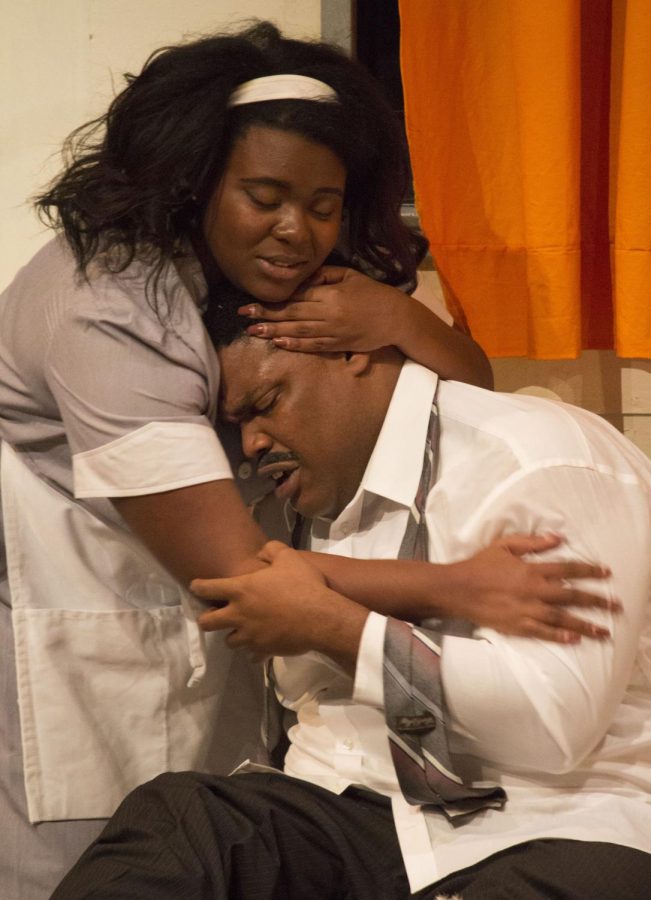Play provides different image of civil rights leader
July 5, 2017
I arrived early at the George S. Lindsey Theatre for the University of North Alabama Summer Theatre’s opening night performance of “The Mountaintop,” eagerly awaiting what was in store.
The play tells a fictional version of Rev. Dr. Martin Luther King Jr’s last night alive. However, he does not spend the night alone as Camae, a first-day-on-the-job maid, answers his call for room service and sticks around with him all night. She spends her time with him talking about his vision for the future and his legacy so far before revealing her true identity in a shocking twist.
When entering the show room, I first noticed the realistic set of room 306 of the Lorraine Motel. It looked like a 1960’s hotel room, complete with two beds, a bathroom and a bedside lamp.
The theatre speakers were also playing pre-show music, which consisted only of songs I would describe as ripped straight out of a 60’s radio channel, including the likes of Andy Williams, James Brown and The Beatles. It was quite a nice touch, and it helped to set the scene.
I particularly loved the effect of seeing the motel balcony outside the set’s window. Soon, after the music ended, I could also see a figure outside about to enter the room. King had arrived.
UNA theatre alumnus Michael Baldwin played the role of King. While I have seen the films “Selma” and “All the Way,” Baldwin’s portrayal was the first time I got to feel parts of King’s presence in person.
This is not to say Baldwin spends the entire play shouting about civil rights. Instead, the production gives him the opportunity to show us the other side of King: an ordinary man who drinks coffee, jokes and makes mistakes.
Yes, we see King smoke, curse, eyeball the maid and even argue with God. Even though King brought about a turning point in civil rights, he was still a man who was far from perfect. And this is what Baldwin portrays well.
In playing King, Baldwin becomes an entirely new character, one that resembles the King we all know from history, but also goes through struggles he may not have let show in public.
However, King is not always the star of the show. Sophomore Destini Croom, a current theatre student, portrays Camae, who is not exactly the type of person one would expect to hang around King.
She curses more than he does, proves she has some sass to spare and even provides King with cigarettes and whiskey. However, with the context of the play, this makes her a good companion for King, even though she is an entirely fictional character.
With her imperfections come experience. While she can point out King’s sins, she can also be there for him. She has not lived a perfect life and, thus, can relate with and bring comfort to him as he goes through his final hours.
This play has a lot in it. While it focuses on King and the legacy he left behind, it also brings comedy, drama (particularly the scene about Camae’s backstory), and some truly cinematic moments, especially the ending, which finishes with the simple words, “It’s time.”
It also reminds the audience that there are still issues today that must be overcome, and not just civil rights.
Though I left the theatre thinking more about King than current issues, the play itself stayed in my mind.












